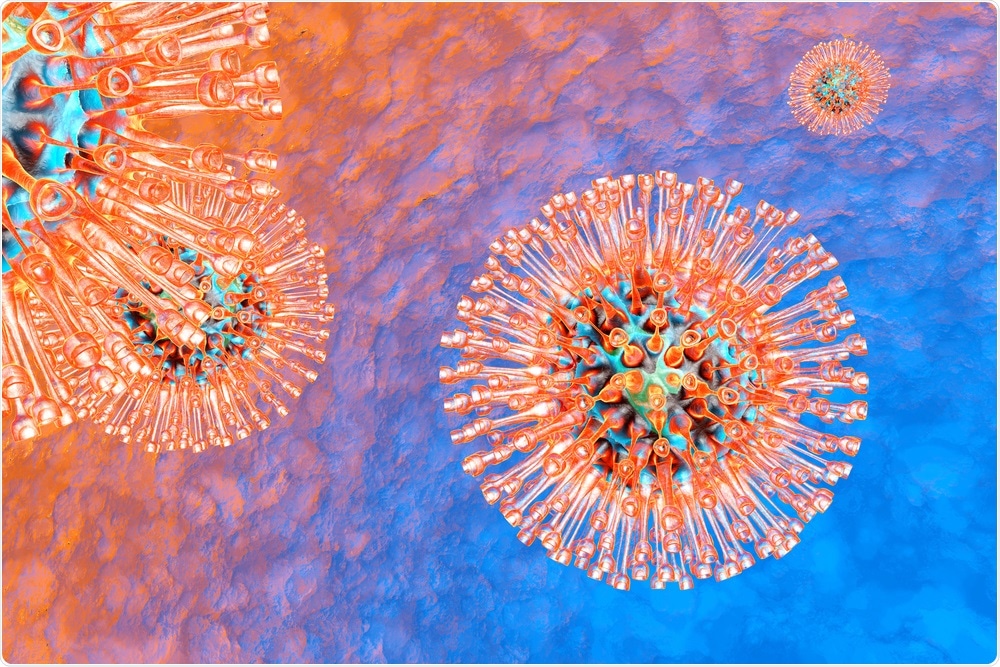
Could we prevent Alzheimer's disease by treating herpes?
An exciting new review paper by Professor Ruth Frances Itzhaki suggests that over half of all cases of Alzheimer’s disease could be traced back to Herpes Simplex Virus 1 (HSV1) ; the virus responsible for cold sores and genital herpes.
 Image Credit: Lightspring / Shutterstock
Image Credit: Lightspring / ShutterstockImportantly, the research suggests that the use of antivirals to treat severe herpes virus infection could reduce the risk of senile dementia.
The review, which traces Dr. Itzhaki’s lifetime of work on the causation of Alzheimer’s disease, was recently published in the journal, Frontiers in Ageing Neuroscience.
If confirmed, this groundbreaking work points to an inexpensive and effective means of preventing Alzheimer’s disease, which is one of the most costly medical conditions in the world.
HSV1 underlies Alzheimer’s disease
Herpes simplex virus 1 (HSV1) is notorious for its tendency to remain dormant in a patient’s neurons and immune system.
The infection is reactivated under conditions of weakened immunity or stress. This results in the reappearance of cold sores. Most older adults show the presence of antibodies against HSV1.
In older studies, Itzhaki had shown that cold sores are more common in patients who carry the gene variant APOE-ε4, which is also associated with a higher risk of Alzheimer’s disease.
She theorizes that Apolipoprotein E-ε4 (ApoE-ε4), which has been strongly linked to Alzheimer’s disease, predisposes the patient to more frequent or damaging reactivations of HSV1 in the neurons of the brain. This causes harmful changes within the neurons to accumulate, resulting in Alzheimer’s disease.
Proving the link
In most countries there simply isn’t enough population data to put the HSV1 theory to the test, since information on the reduction of dementia risk in individuals treated with antivirals, for instance, is not typically collected.
Taiwanese scientists have succeeded in accumulating this type of data, however.
The National Health Insurance Research Database has over 99.9% of the population on its rolls, and data mining of this vast repository is underway in multiple areas to explore contagious diseases and other conditions.
As a result, 2017-18 witnessed the publication of three separate reports on the Taiwanese data relating to the occurrence of senile dementia, caused mainly by Alzheimer’s disease, as well as on the treatment of patients who have frank HSV or VZV (varicella-zoster virus, chickenpox virus) infection.
How does this work? Itzhaki and her colleagues already demonstrated that HSV1 infection led to the characteristic neuronal plaques and neurofibrillary tangles of Alzheimer’s disease, which supports the epidemiological findings.
This was proven by the presence of viral DNA within amyloid plaques in brains of patients with Alzheimer’s disease at postmortem.
In addition, in cell cultures infected with HSV1, both amyloid plaques and tau tangles accumulate, but this can be inhibited by the use of antivirals.
Preventing Alzheimer’s disease
Dr. Itzhaki stresses that the Taiwanese data apply only to severe infections with HSV1 or VZV, which are atypical.
To strengthen their findings, detailed epidemiological data on dementia would need to be drawn from people with mild HSV1 infection (both cold sores and genital herpes). This data is difficult to find, however, with barely any records.
The focus of future research will be to verify the observation that HSV1 infection is causally related to Alzheimer’s disease and to define the nature of this link.
However, Itzhaki is already looking forward to the exciting prospect of being able to treat this widespread and often disabling condition with antiviral drugs directed against HSV1.
Taking inspiration from the global use of human papillomavirus (HPV) immunization to protect against cervical cancer, the research team is hopeful that uncovering this virus-disease link will lead to the effective treatment and prevention of Alzheimer’s disease, by a vaccine against HSV1, for instance.
Source:
This news story is based on a press release by the journal, Frontiers in Ageing Neuroscience,and the review itself, entitled “Corroboration of a Major Role for Herpes Simplex Virus Type 1 in Alzheimer’s Disease” which was published today.



































No hay comentarios:
Publicar un comentario